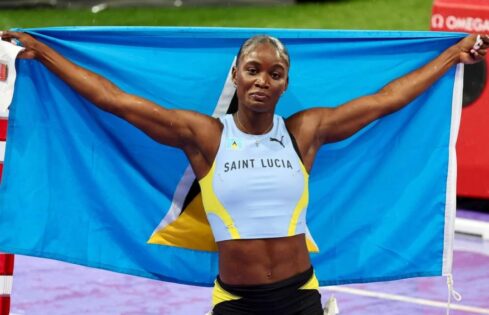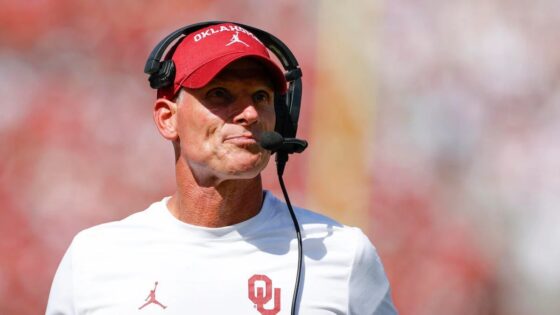Whoa! Track and field’s ‘passport shuffle’ just turned up to 11! For years, global athletics has quietly watched as athletes traded flags, some for opportunities, others for survival. But in 2025, the game changed. Over the last ten days alone, four freshly minted Jamaican Olympic medallist athletes have filed for nationality transfers, and Turkey has emerged as the hottest destination. Add at least half a dozen African talents circling the same deal. Suddenly, Ankara looks less like a federation and more like a free-agency super-team, and every fan is asking: Who’s next? Well, it’s time to find out!
Meet the headline name: Favour Ofili. The 22-year-old Nigerian track and field sensation, Africa’s indoor 200 m record holder, 150 m world-record breaker (15.85 s in May) and 2023 NCAA champion, quietly filed her switch on 31 May 2025, frustrated by years of missed entries and late payments from the Athletics Federation of Nigeria.
Multiple outlets place her Turkish package close to US$1 million in support, housing, and guaranteed starts at European Championships, an offer too good to ignore after watching two Olympic cycles slip through clerical cracks back home.
#BreakingNews
Nigerian sprinter @FavOfili has switched allegiance to Turkey as of May 31, 2025. According to impeccable @TvjNewscentre sources, 22-year-old Ofili has advised the @aiu_athletics of her frustration with the Nigerian Athletics Federation. pic.twitter.com/Jki58PN4L8
— Kayon Raynor (@kayraynor) June 22, 2025
There’s a clock ticking, though. World Athletics rules slap a three-year cooling-off period on nationality swaps (dating from an athlete’s last international race) unless both federations and WA grant a waiver. Ofili last wore Nigeria’s colours in 2023, so, paperwork willing, she could debut for Turkey as soon as the Tokyo World Championships this September. A fast-track exemption would turn her switch into the most dramatic jersey change the sport has seen since Ramil Guliyev traded Azerbaijan for Turkey in 2011. Why does her leap matter?
If 2025 is any guide, the next global championship could feel a lot less like USA vs Jamaica vs Kenya and a lot more like Turkey vs the world. And with news of Favour Ofili’s switch, fans are split: some track and field fans are heartbroken, others are cheering her on with quiet relief.
As stars switch flags, track and field fans are left divided and disillusioned
One track and field fan added, ‘Ofili stated that the Nigerian Ath. Fed. caused her to miss the Tokyo 2020 Olympics after they did not confirm her number of doping control tests, and then missed competing in the 100m at the Paris Olympics after they did not enter her for the event. She was 6th in the 200m final.’” That frustration echoed widely across the athletics community, as fans rallied behind the 22-year-old “Star Girl” from Port Harcourt, Africa’s indoor 200 m record holder (21.96 s), NCAA champion, 150 m world-record breaker (15.85 s), and a 2024 Olympic finalist. But her resume tells only half the story.
The other half is littered with administrative failures, shattered Olympic dreams, and emotional burnout, nearly all of it tied to Nigeria’s Athletics Federation (AFN). Tokyo 2020 (held in 2021) was the first major blow. Despite being fully eligible, Ofili and nine other Nigerian athletes were disqualified after the AFN failed to meet World Athletics’ anti-doping testing requirements. Not one of them had tested positive. Then came Budapest 2023. Just two days before the Nigerian national trials, AFN declared that only athletes physically present in Benin City would be selected for the World Championships, disregarding qualifying marks earned overseas. Ofili, then Nigeria’s top-ranked 200 m sprinter, was in the middle of her U.S. collegiate season. Her name was at risk of being dropped despite her performance.
“Surprised it took her this long to switch. I am sure the same incompetent fools who messed up are still in their same positions,” another track and field fan posted. “Sport is about age and prime too. She wasn’t registered twice for the Olympics i. e 8 years wasted. No one took responsibility for it. I respect her decision and I wasn’t surprised either. I wish her the very best .” The damage wasn’t just professional, it was personal. The final straw came in Paris 2024. Ofili, having clocked 11.06 s at the national trials, fully expected to run the 100 m alongside the 200 m and the relay. But just before the event, she found out she hadn’t been entered.
The AFN blamed the Olympic Committee. The Committee blamed “technical issues.” World Athletics? Only showed entries for the 200 m and 4×100 relay. Ofili took to X, furious: “I qualified, but AFN & NOC failed to enter me… I worked four years for this.” A government panel later confirmed the error and recommended ₦8 million (about $5,000 USD) be paid to her for “distress and depression.”
Beyond these headline failures lies a pattern of deeper dysfunction. Between 2019 and 2024, Nigerian athletes like Ofili routinely faced delayed payments, last-minute visa issues, unpaid allowances, and shoddy travel logistics. Some had to crowd-fund meals during international competitions or rely on support from their U.S. schools just to compete. Meanwhile, their global rivals enjoyed backing and elite infrastructure. This uneven playing field, exposed again and again in athlete testimonies and official audit reports, left Ofili with no choice.
Another track and field fan simply said, “Happy for her.” And honestly, how could you not be? Favour Ofili’s resume is nothing short of electric. Just this May, she broke the world record in the straight 150 m, clocking 15.85 s (+2.0) at the adidas Atlanta City Games and erasing Olympic 400 m champion Shaunae Miller-Uibo from the books. That’s not just beating a world champ—it’s rewriting history. Earlier in the season, she blasted a 10.99 s in the 100 m at LSU Alumni Gold, making her the No. 2 sprinter globally at the time, just 0.01 off the world lead. Then came her 200 m outing at the Tom Jones Memorial, 22.34 s (+0.2), second only to Olympic champ Julien Alfred.
And also, she was the LSU Lady Tigers track and field team in 2021, where she quickly made her mark, earning multiple All‑America honors, winning the SEC 100 m, 200 m, and 4×100 m relay titles at the 2022 SEC Championships, and claiming the Commissioner’s Trophy as the top scorer!!!
One more track and field fan added, “These switches are killing the sport more than you think. I for one, have lost interest, support, and respect for the athletes and sport.” And they’re not alone. In just the past ten days, four of Jamaica’s Olympic medallists—shot-putter Rajindra Campbell, discus thrower Roje Stona, long jumper Wayne Pinnock, and triple-jump sensation Jaydon Hibbert- have reportedly filed to switch allegiance to Turkey, each enticed by a US$ 500,000 signing bonus plus podium incentives. Add to that at least six rising African stars said to be eyeing similar deals, and Turkey’s 2025 transfer application count has already topped a dozen, easily the largest wave since World Athletics reopened its transfer window in 2022.
Another more track and field fan snapped, “Who needs her anyways?” It’s just the anger. But here’s the real question: what if she can, and she does… just not in green and white? Under World Athletics rules, athletes who switch countries must wait three years from their last international appearance unless they get a special waiver. Ofili last ran for Nigeria in 2023, which means she could officially debut for Turkey by 2026. But rumor has it her new team is quietly pushing for her to be fast-tracked. If that happens, she could be on the start line this September in Tokyo at the World Championships wearing Turkish red, not Nigerian green. Now that would be a statement. If that happens, it won’t just be a race, it’ll be a reckoning.
The post LSU Star Sparks Outrage in Track and Field Community With Controversial Career Move appeared first on EssentiallySports.



